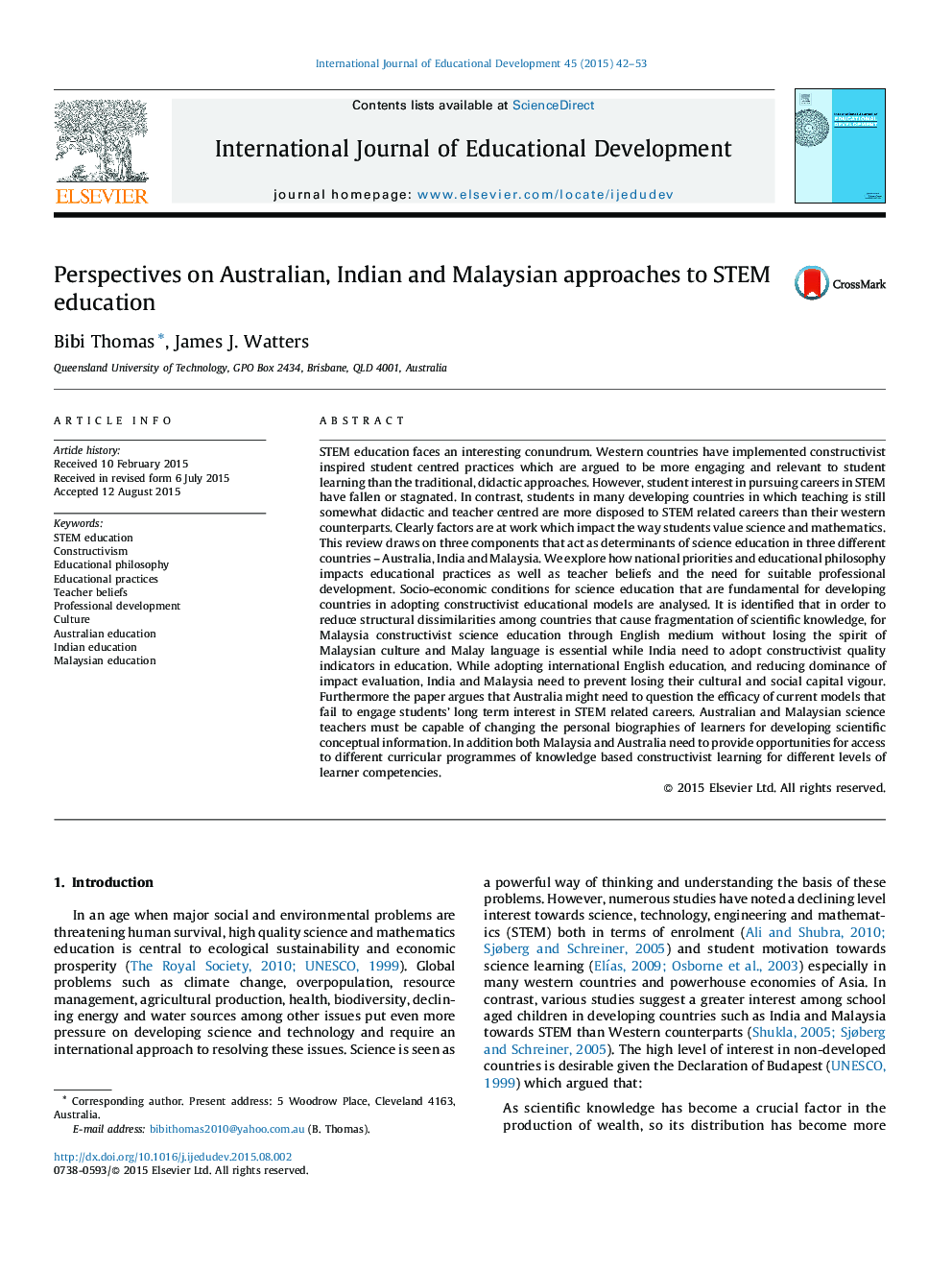| کد مقاله | کد نشریه | سال انتشار | مقاله انگلیسی | نسخه تمام متن |
|---|---|---|---|---|
| 356006 | 1435105 | 2015 | 12 صفحه PDF | دانلود رایگان |
• Australia needs to develop science teachers with interdisciplinary capabilities.
• Australia must further promote scientific conversations in classrooms.
• Changing learner personal biographies must be a priority for Australian teachers.
• Malaysian science teachers also must be able to change learner personal biographies.
• India and Malaysia should capitalize interest in STEM to adopt constructivism.
STEM education faces an interesting conundrum. Western countries have implemented constructivist inspired student centred practices which are argued to be more engaging and relevant to student learning than the traditional, didactic approaches. However, student interest in pursuing careers in STEM have fallen or stagnated. In contrast, students in many developing countries in which teaching is still somewhat didactic and teacher centred are more disposed to STEM related careers than their western counterparts. Clearly factors are at work which impact the way students value science and mathematics. This review draws on three components that act as determinants of science education in three different countries – Australia, India and Malaysia. We explore how national priorities and educational philosophy impacts educational practices as well as teacher beliefs and the need for suitable professional development. Socio-economic conditions for science education that are fundamental for developing countries in adopting constructivist educational models are analysed. It is identified that in order to reduce structural dissimilarities among countries that cause fragmentation of scientific knowledge, for Malaysia constructivist science education through English medium without losing the spirit of Malaysian culture and Malay language is essential while India need to adopt constructivist quality indicators in education. While adopting international English education, and reducing dominance of impact evaluation, India and Malaysia need to prevent losing their cultural and social capital vigour. Furthermore the paper argues that Australia might need to question the efficacy of current models that fail to engage students’ long term interest in STEM related careers. Australian and Malaysian science teachers must be capable of changing the personal biographies of learners for developing scientific conceptual information. In addition both Malaysia and Australia need to provide opportunities for access to different curricular programmes of knowledge based constructivist learning for different levels of learner competencies.
Journal: International Journal of Educational Development - Volume 45, November 2015, Pages 42–53
